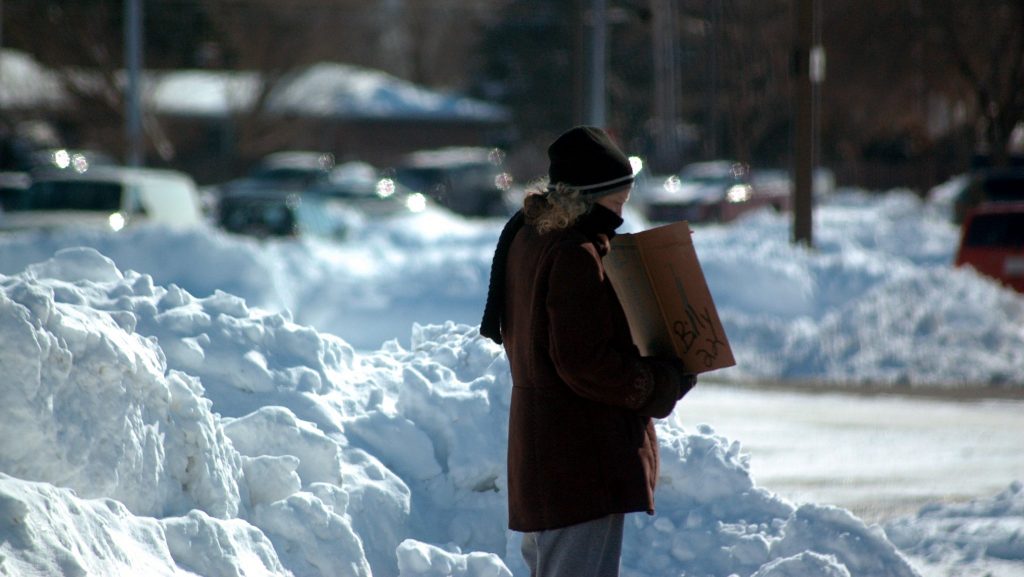Detroit Today: Why homelessness still exists in the richest country in the world
In Detroit in 2022, the number of women and families that were unhoused or homeless rose 18% and 14%, respectively.

Photo credit: Steve Baker, Flickr
As the metro Detroit area grapples with extremely low temperatures this week, it’s hard not to think about the city’s homeless population.
While there are shelters around the city, there is often at least one homeless person that dies each year from being outside too long in frigid temperatures. Just this past Sunday, authorities found a 60-year-old man in Orion Township who reportedly died of exposure to the cold.
And in some areas, the problem is getting worse. In Detroit in 2022, the number of women and families that were unhoused or homeless rose 18% and 14%, respectively, according to the Homeless Action Network of Detroit. These statistics are part of what led the city’s Housing and Revitalization Department to join together with several community partners in 2023 to create a five-year strategic plan to establish goals, priorities and actions to reduce homelessness in the city, as well as a new help line.
To dive into this issue, Detroit Today host Stephen Henderson was joined on the show Tuesday by Nushrat Rahman, economic mobility reporter for the Detroit Free Press; Gregg Colburn, associate professor of real estate in the College of Built Environments at the University of Washington; and Tonya Hogan, a Michigan resident who found herself homeless after losing her husband to COVID-19.
Subscribe to Detroit Today on Apple Podcasts, Spotify, Google Podcasts, NPR.org or wherever you get your podcasts.
Guests:
Nushrat Rahman is an economic mobility reporter for the Detroit Free Press. She wrote about homelessness in an article for Bridge Detroit in the fall. She says homelessness has gotten worse in Detroit because there’s less available housing that is affordable for people in the city.
“The thing is, it’s like an economic issue. You need developers that have the subsidies… to create affordable housing. And it takes a while to create affordable housing and stand it up,” said Rahman.
Tonya Hogan fell into homelessness after losing her husband to COVID-19. She found housing in Melvindale after a search that lasted about a year. She says that after her husband died, she lost necessary income and a house that she and him would have otherwise purchased.
“There’s so much that I lost in this journey,” said Hogan.
Gregg Colburn is an associate professor of real estate in the College of Built Environments at the University of Washington. He co-wrote a book called, “Homelessness is a Housing Problem: How Structural Factors Explain U.S. Patterns.” He says the vacancy rate for homes that are in good condition in Detroit dropped from 10.5% to 3.7% over the last decade, making the problem of homelessness much worse.
“This housing crisis, this shortage that you’re talking about — it’s no longer just a Seattle, Boston, New York, (Los Angeles) story, it’s a Detroit, it’s a Wichita, an Indianapolis story,” says Colburn.
Listen to Detroit Today with host Stephen Henderson weekdays from 9-10 a.m. ET on 101.9 WDET and streaming on-demand.
Trusted, accurate, up-to-date.
WDET strives to make our journalism accessible to everyone. As a public media institution, we maintain our journalistic integrity through independent support from readers like you. If you value WDET as your source of news, music and conversation, please make a gift today.

